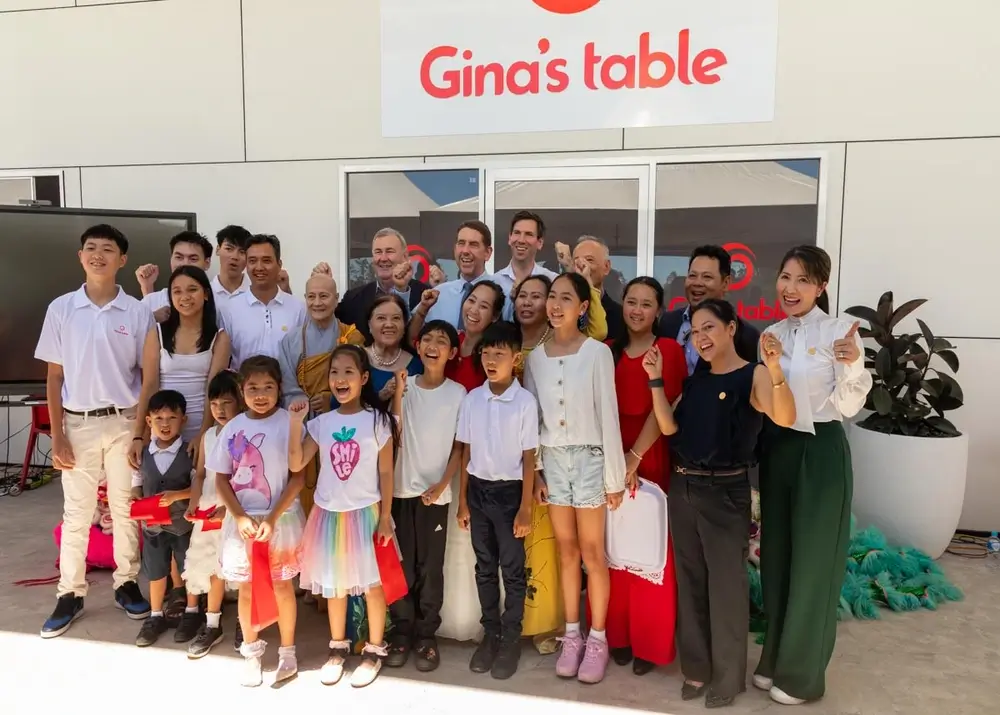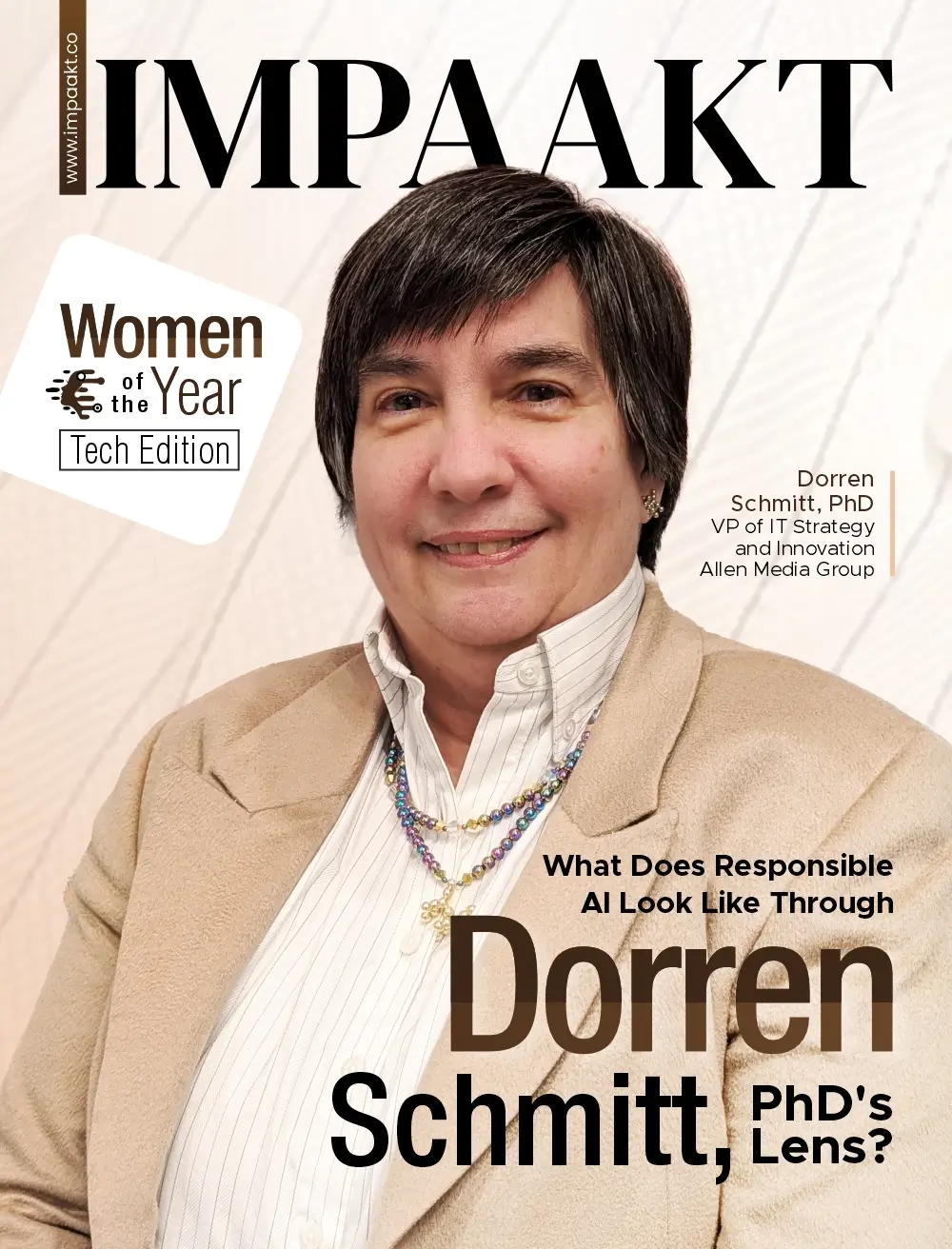Food Sustainability has emerged as a growing challenge in 2024. With US EPA coining a term ‘WASTED FOOD’ with a very particular intention that explains that 30% of food wastage is caused in the phase of production to distribution, ultimately draining into landfills.
These statistics surely are alarming, considering that 10% of the world’s population is deprived of food. Imagine 2050, when the world population is estimated to rise by 2 billion, and meeting food requirements will be synonymic with removing forests and converting them to agricultural land. What then?
SSS Strawberries – 2024’s most iconic food sustainability company is addressing this gap with its state-of-the-art freeze-dried and frozen fruit factory.
Under the leadership of Gina Dang, General Manager—SSS Strawberries plans to save $600,000 worth of our second-grade strawberries into snacks and strawberry powder and freeze-dry other local produce, preventing it from ending up in landfills, with a total of 2 million kilos of produce processed annually.
At Gina’s Table, a subsidiary of SSS Strawberry, all the freeze-dried products are manufactured. What sets them apart is that all the fruits are free of adulterated sugar, providing the best quality fruit in the market—ensuring food sustainability at its highest standard.
Starting with humble beginnings of five acres and led by the second generation of the Dang family: Victor, Tam, Toan, Lily, Gina, Cindy, Trinity & Rena, SSS Strawberries is now known for cultivating over 300 acres and more than 4 million strawberry plants, becoming a cornerstone of the region’s employment with over 350 dedicated staff during peak seasons.
Dive in to read the full interview!
Can you share the story behind your family’s immigration to Australia and how it influenced your journey to becoming the General Manager of a sustainable company?
One of our family’s key values is perseverance. We have an incredible drive and work ethic which underpins the business’ growth and resilience. Our parents had a natural talent for entrepreneurship, based on their ability to withstand even the toughest challenges and they’ve passed this onto us.
Our father attempted to flee Vietnam several times and was jailed, punished and tortured; we endured a tough journey by small boat to Indonesia during which our food and water was robbed by other ships; we lived for four years in an Indonesian refugee camp, sharing barracks with up to 100 people; and we had our refugee applications knocked back several times. Our family farm was started in 2001, several years after my parents, Tan Dang and Gem Nguyen, arrived in Australia. This was after several years of working on other strawberry farms there. My six brothers and sisters, Victor, Lily, Cindy, Tam, Trinity, and Rena and I all worked in the field and packing shed with our parents after school and on the weekends.
We all received university degrees with the intention not to work on the farm because we all saw what hard work it is.
However, we could not watch our parents struggle and workday and night without helping, so naturally we all fell into position and took charge of the farming business and re-branded it to SSS which stands for “Seven Successful Siblings.” Our farm is now in Bundaberg, Queensland, Australia. I became General Manager organically because I am a noisy person, I like to stick my head in every area.
We all grew up with the value of ‘do not waste food’ yet as our farm grew, the more we had waste. I am always looking for options to reduce our waste because the fruits taste amazing even when they don’t have the perfect look. We donate to local charities; age care centers, food supply charity, Meal on Wheels, schools and animal farms and the surplus goes to landfills.
That is where the idea for the innovation of freeze-dried fruit started.
What inspired you to focus on sustainable agriculture and food production, and how does it align with your long-term vision for the industry?
We invested in the factory as we saw a growing need to end food waste. We have been involved with strawberries since we arrived in Australia from Vietnam. Hence, we know firsthand the back breaking work it takes to get a good crop up and out of the ground. It’s heartbreaking to watch fruit that we have grown get rejected and destroyed. Why should all that good flavor go to waste?
We wanted to find a way to ensure that the fruit that can’t be sold due to strict criteria has a second life. That’s as much as 10% of the crop. I am passionate about supporting the growth and development of the Australian agricultural sector, as well as other sectors that impact the economy and the environment. My research indicated that every farm and every food business had a huge amount of food waste.
Could you outline some key sustainable practices implemented in your family farm and food brand, and how do these practices contribute to environmental stewardship?
- Ethical practice is at the heart of what we are working to achieve at SSS Strawberries and Gina’s Table is the implementation and contribution of circular economy, through our commitment to local production, fair employment conditions and reducing food waste.
- The state-of-the-art, purpose-built freeze-drying facility represents sustainable industrialisation and innovation. It stands as Australia’s first large-scale facility prepared to service SSS Strawberries’ and other farmers’ agricultural waste, fostering innovation in sustainable food processing.
- The new facility has created 50 new permanent jobs and provided safe, sustainable working conditions for Bundaberg locals.
- During the construction and commissioning of the factory, more than 80 people were employed on a temporary basis in part time or contract positions.
- We also chose to work with a variety of local, interstate and overseas technicians to support the construction and commissioning of the plant, from Bundaberg, Brisbane and Victoria to Denmark and Italy.
- SSS Strawberries is a major employer in the Bundaberg, Queensland region. We work with both government and industry partners to create positive change within our community and region.
- Having experienced poor working conditions and bad treatment as seasonal fruit pickers ourselves for many years, our founders set out to build a company which would create a positive and respectful working environment. We were motivated to create great jobs for others. SSS Strawberries has a reputation for treating workers like family – to the extent that 350 employees all call SSS Strawberries founder and matriarch ‘mum!’
- Not only do we provide fair remuneration and conditions, but we’ve also developed apartment-style living accommodations for our workers and others.
- Our SSS Village is a modern 30-unit purpose-built backpacker hostel for up to 240 farmworkers. It was designed to provide the highest level of comfort, safety and privacy to residents who undertake farm work in Bundaberg.
- Our approach is focused on creating a ‘home away from home,’ offering workers more than just lodging—it’s a welcoming, secure, and cozy environment where they can truly feel at home, even when they’ve travelled here from another country.
What are some significant milestones or achievements your company has accomplished in terms of sustainability and innovation and how do you measure the success of these initiatives?
On December 6, 2023, SSS Strawberries opened its $15 million, 4,000 square meter freeze-drying factory, Australia’s first and largest in the suburb of Thabean in Bundaberg, Queensland. At capacity, the factory can process over 2,000 tons of fruit.
The measurement of the factory’s success:
- As part of our efforts to build a successful export element of the business, our facility is also registered with the US Food and Drug Administration (FDA).
- By pioneering a large-scale freeze-drying facility in Australia, we are addressing food waste in a novel way, transforming surplus fruits into nutrient-dense products that are shelf-stable and easy to transport.
- Upcycling unmarketable fresh fruits into freeze-dried products helps reduce energy and fuel consumption, i.e., from cold and refrigeration storage and transportation to landfill.
- The initiative reduces food waste significantly by diverting surplus strawberries from disposal and transforming them into high-quality freeze-dried products, demonstrating responsible production and consumption patterns.
- During the processing of Happles, all the biproducts such as apple cores, strawberry leaves and tops are converted into compost for farm use.
- The factory features Cold Room panels 100mm thick and Freezer panels 200mm thick; this strong insulation helps maintain a cool temperature, reducing our power usage.
- We have installed rapid-opening doors for the loading and unloading area and in high-traffic areas. This helps to prevent the cold air from getting out or hot air from entering the factory. This also helps reduce our energy consumption significantly.
- We added a purpose-built transfer room into our design, with rapid opening doors to prevent cold air – hot air transfer from one room to the other. This again maintains the right room temperature and moisture while reducing the use of power and maintaining product quality.
- Our fruit wash bath uses Glycol to keep the water temperature cold at 6 degrees. Any excess glycol goes towards cooling the factory efficiently. We have also insulated the water tank next to the fruit washroom and we maintain the water temperature in the tank at 6 degrees. This helps with efficiency and uses less power when the pump is running.
- All the compressors in the plant room use VRF (Variable Refrigerant Flow). Again, this allows for efficiency and lowers the power consumption.
- We use natural gas for our water heating throughout the factory and for the steam boiler. This reduces our power consumption.
- We have water tanks for water usage and the land surrounding the factory has been landscaped to allow wastewater to be used for watering the grass and trees.
- Reducing organic waste minimises the methane emissions associated with the decomposition of organic matter and contributes to climate action efforts.
- Lower ‘food miles’ further reduce our carbon footprint. Our ability to process our and other local producers’ food waste onsite lessens or eliminates the distance involved if the food were sent to landfill.
- We are in the process of installing solar panels to offset a substantial portion of the energy needs of our facility. Looking ahead, we are considering the possibility of energy storage solutions, such as batteries, to capture excess solar energy generated.
Can you discuss the development process behind Gina’s Table and how it reflects your commitment to providing quality, sustainable food products to consumers?
- Gina’s Table food brand is a process of upcycling unmarketable fruits and turning them into high-value food. This means that we had an opportunity to create a new Australian industry that ethically sources supermarket-surplus food, reusing what would otherwise go into landfill to create our delicious line of freeze-dried fruit.
- Very few products that are 100% freeze-dried without added sugar are available in the market. Gina’s Table has revolutionised this by committing to No Added Sugar in any of its freeze-dried products.
- We have also committed to No Preservatives, No Additives, ensuring all of our consumers can feel confident in the healthfulness of the Gina’s Table snack range.
- Gina’s Table product line of ready-to-eat snacks is sourced from local and national farmers’ produce which would otherwise be sent to landfill, at the expense of significant time and energy to the primary producers.
- Our product is 100% Australian made with all fruit 100% Australian grown.
- Freeze-drying our products in Australia ensures that the highest standards of safety and ethical practices are met across pillars such as Ethical Sourcing, Environmental Impact and Quality Control.
- SSS Strawberries has ensured that our state-of-the-art facility meets Hazard Analysis and Critical Control Point (HACCP), Good Manufacturing Practices (GMP) and Traceability standards.
- We have Food Safety Certifications: FBPFSY1001 and FBPFSY2001.
- We comply with the Queensland Food Act of 2006 and hold a Food Business Licence to that effect.
- As both a farming business and food processing business, the SSS family ensures it works ethically according to Australian employment standards, creating jobs in regional Australia and contributing to the positive impact of the economy.
- We believe strongly in contributing to our community, and we are very active with our Council and local members at the State and Federal level, as well as with Trade and Investment Queensland, all aimed at creating a vibrant and thriving primary producing community in Bundaberg.
- We are working towards finding a packaging solution that is recycled and low waste. Currently we use aluminium packaging due to the high moisture barrier that freeze-dried fruit requires to maintain the quality and integrity of the fruit as well as to maintain the products’ shelf life. This is also because Queensland Australia is a State with humid weather.
As a leader, how do you foster a culture of sustainability and innovation within your organization, and what strategies do you employ to ensure these values are embraced by your team?
Had our business not been a family business, it most likely would have failed. It is the strength of our family unit and our determination to provide for our family which has seen us through the darkest times.
We’ve worked in the business ever since we were kids, sometimes from sunrise to sunset and often performing extremely physically demanding work. It’s difficult to replicate that unrelenting drive and focus on a business that isn’t a family business. Our family has an unrivaled drive, entrepreneurial spirit, and persistence borne out of many years of intense struggles. Our parents have had to start over again and again. Before launching SSS Strawberries they ran several businesses as builders, farmers, bakers and winemakers, eventually establishing the first Asian supermarket in the refugee camp in Indonesia. Our parents built the farm from the ground up, remaining resilient even when it seemed like the business might fail. We don’t let challenges deter us, instead, we find ways to overcome those challenges through innovative persistence. As a family, we also support each other no matter what.
Our mum told us that no matter the situation, we must stick together as “one chopstick can easily break, but a bunch is much harder to break.” That philosophy has created a strong family unit and management team as SSS Strawberries unified in working towards a common goal. This can only be achieved in the family business and gives us a significant competitive advantage.
What role do you see your company playing in shaping the future of the Australian agricultural sector, particularly in terms of sustainability and environmental impact?
We embrace innovation and are believers in the circular economy. We are working with other farmers in our region to ensure that all of us benefit from freeze-drying technology. Freeze drying is the process where frozen raw materials are placed in a refrigerated vacuum and ice crystals in the product are sublimated into water vapor, while the cell structure of the original product remains. This locks in all flavor and nutrition. This is the same technology that helped food survive in space.
Freeze-dried products are also desirable because of:
- Consumer focus on healthy foods
- Convenience
- Perfect snack
- Great taste
- Long shelf life
- Delicious, nutritious
- Freshness
- Lightweight
- Adding color to recipes
- Adding texture to meals
- Ideal for emergency food kits
The goal of the ‘Gina’s Table’ initiative was to both reduce food waste and to turn perfectly edible but unmarketable fruit into a separate revenue stream, rather than paying to divert good, nutritious food to landfill. By creating a more circular system (SDG 12), we could:
- Embrace technological advances that foster sustainable innovation and development of highly innovative new products and businesses based on locally sourced, preservative-free foods (SDG 9).
- Maximize the use of the food we produce for human consumption by providing a product that is fresh-flavored, highly nutritious and easily transportable (SDG 2).
- Encourage climate-positive food waste management by diverting food from landfill and reducing ‘food miles’ (SDG 13).
- Support our core company value of creating sustainable economic opportunity for our employees and increased social cohesion in rural communities (SDG 8).
- Collaborate with other producers to help reduce their food waste and, more broadly, promote sustainable agriculture industry-wide (SDG 17).
We have engaged in several strategic collaborations to enhance the sustainability and reach of our freeze-drying initiative. One notable partnership is with a large apple grower in Victoria, also raspberry and blueberry farmers in our local region which led to the development of our innovative “Happles” product range. This venture showcases our commitment to collaborative product innovation.
Could you share any specific initiatives or projects your company is undertaking to further its commitment to sustainability and what outcomes do you hope to achieve through these efforts?
Currently recycling packaging for both fresh produce and Gina’s Table freeze dried and frozen fruits is our priority. All our transportation packaging utilizes recycled cardboard, and we hope to achieve 100 % recycling material for all our single packaging as well.
How do you balance the economic considerations of running a successful business with the environmental and social responsibilities of sustainability?
As a strawberry farmer, I prioritize sustainability by integrating it into every aspect of our business operations. I balance economic considerations with environmental and social responsibilities by adopting practices that promote long-term profitability while minimizing negative impacts on the environment and benefiting the community. This involves investing in Gina’s Table State-Of-The-Art freeze dry factory as well as using sustainable farming methods such as maintaining healthy soil, water conservation techniques to minimize resource usage, and energy-efficient technologies to reduce costs.
Furthermore, I engage with stakeholders, including customers, employees, and local communities, to understand their needs and concerns regarding sustainability. By being transparent about my farming practices and food processing and actively seeking feedback, I build trust and support for my sustainable initiatives. Additionally, I collaborate with other farmers, businesses, government and organizations to leverage resources and drive collective action towards common sustainability goals. Ultimately, by taking a holistic approach to farming that considers economic, environmental, and social factors, I ensure the success of my business while contributing positively to the well-being of the environment and society.
Looking ahead, what are your goals and aspirations for the future of your company in terms of sustainability, innovation, and overall impact on the community and environment?
For Gina’s Table, my vision is to lead the way in sustainable food processing by implementing eco-friendly practices throughout our operations. We aspire to achieve zero waste by utilizing all parts of the fruit and limiting packaging materials to biodegradable packaging to further reduce our environmental impact and provide customers with the highest quality, ethically produced freeze-dried fruits.
I aspire to innovate by integrating cutting-edge technologies and techniques to enhance efficiency and productivity while reducing resource consumption. Ultimately, I aim to have a positive impact on my industry and community by providing healthy, locally grown produce, promoting environmental stewardship, and fostering a resilient agricultural ecosystem for future generations.











